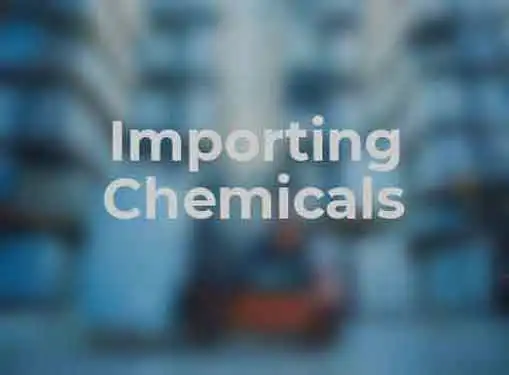Import Business
Importing Chemicals Into the United States
Interested in importing chemicals into the U.S.? Lots of businesses turn a profit from bringing chemicals into the country. But as you might expect, the federal government imposes strict regulations on importers of chemicals and toxic substances.
If you think the idea of importing chemicals into the U.S. sounds dicey, you're on the right track.

The federal government is very concerned about the transportation of chemical substances across American borders. Consequently, the regulations that govern imported chemicals are stricter than the regulations governing other types of foreign goods and merchandise.
When it comes to chemical imports, the government has a couple of concerns. In addition to making sure that the goods are transported safely, customs wants to ensure that imported chemicals won't harm the environment or American consumers. For importers, that means navigating regulations that can seem dense and burdensome.
TSCA Overview
Chemical importers are subject to regulations defined by the Toxic Substances Control Act of 1976 (TSCA). The sole purpose of this legislation is to control the use and production of chemicals that may pose a risk to the health of U.S. citizens or the environment. For TSCA purposes, the term "manufacturing" includes import activities - and that means importers must meet all of the same requirements as chemical manufacturers.
The Environmental Protection Agency (EPA) overseas a mind-boggling number of industrial chemicals (75,000+) and if the EPA deems that a chemical creates a significant environmental risk, it's manufacture and import can be banned entirely.
Requirements for Importers
Chemical importers may be required to submit their products to a registration and inspection process. This process is intended to determine whether the chemicals being received into the U.S. pose a hazard or violate import restrictions. No single federal agency is responsible for enforcing chemical import compliance, but importers typically deal with a combination of customs, EPA and DOT agencies.
When your shipment arrives at a U.S. port, you will be required to declare its contents and certify that it complies with chemical importing guidelines. Customs or other agencies may then conduct their own testing to verify your declarations. If an imported shipment does not comply with chemical import restrictions, the shipment will be seized, and the importer may be subject to fines and other penalties.
Share this article
Additional Resources for Entrepreneurs





Conversation Board
We greatly appreciate any advice you can provide on this topic. Please contribute your insights on this topic so others can benefit.